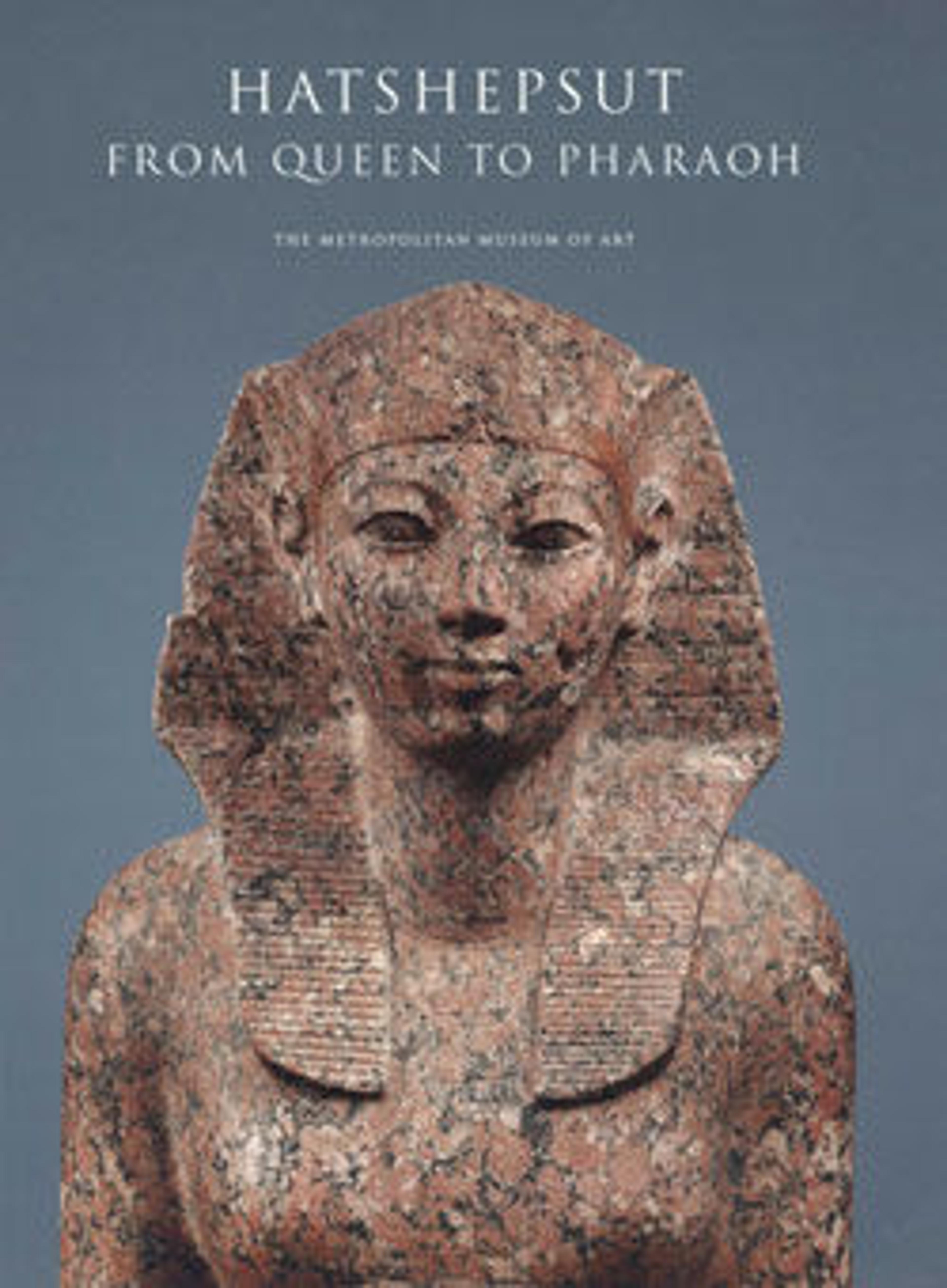Artist's Gridded Sketch of Senenmut
This gridded sketch of a man wearing a short wig undoubtedly depicts Senenmut, one of Hatshepsut's most valued officials. His appointment to a large number of important offices, such as steward of the god Amun at Karnak, enabled him to afford the excavation of an elaborate funerary complex consisting of an offering chapel (TT 71) and a tomb (TT 353) not far from Hatshepsut's temple at Deir el-Bahri in western Thebes. He also created a tomb for his mother, Hatnefer (36.3.1), and other family members on the hillside below.
This limestone chip, called an ostracon, was found in debris on the hillside just below Senenmut's offering chapel on Sheikh abd el-Qurna hill. The profile is quite similar to a drawing in Senenmut's tomb at Deir el-Bahri (fig. 1). It also resembles drawings on another ostracon in the Museum's collection (31.4.2).
This limestone chip, called an ostracon, was found in debris on the hillside just below Senenmut's offering chapel on Sheikh abd el-Qurna hill. The profile is quite similar to a drawing in Senenmut's tomb at Deir el-Bahri (fig. 1). It also resembles drawings on another ostracon in the Museum's collection (31.4.2).
Artwork Details
- Title: Artist's Gridded Sketch of Senenmut
- Period: New Kingdom
- Dynasty: Dynasty 18
- Reign: Joint reign of Hatshepsut and Thutmose III
- Date: ca. 1479–1458 B.C.
- Geography: From Egypt, Upper Egypt, Thebes, Sheikh Abd el-Qurna, Radim below entrance,Tomb of Senenmut (TT 71), MMA excavations, 1935–36
- Medium: Limestone, ink
- Dimensions: h. 22.5 cm (8 7/8 in); w. 18 cm (7 1/16 in); th. 3.3 cm (1 3/8 in)
- Credit Line: Rogers Fund, 1936
- Object Number: 36.3.252
- Curatorial Department: Egyptian Art
More Artwork
Research Resources
The Met provides unparalleled resources for research and welcomes an international community of students and scholars. The Met's Open Access API is where creators and researchers can connect to the The Met collection. Open Access data and public domain images are available for unrestricted commercial and noncommercial use without permission or fee.
To request images under copyright and other restrictions, please use this Image Request form.
Feedback
We continue to research and examine historical and cultural context for objects in The Met collection. If you have comments or questions about this object record, please contact us using the form below. The Museum looks forward to receiving your comments.
